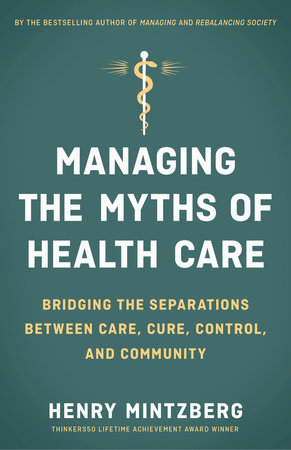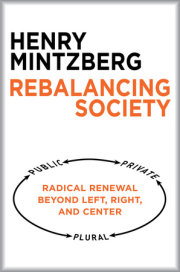“Health care is not failing but succeeding, expensively, and we don’t want to pay for it. So the administrations, public and private alike, intervene to cut costs, and herein lies the failure.”
In this sure-to-be-controversial book, leading management thinker Henry Mintzberg turns his attention to reframing the management and organization of health care.
The problem is not management per se but a form of remote-control management detached from the operations yet determined to control them. It reorganizes relentlessly, measures like mad, promotes a heroic form of leadership, favors competition where the need is for cooperation, and pretends that the calling of health care should be managed like a business.
“Management in health care should be about dedicated
and continuous care more than interventionist and episodic cures.”
This professional form of organizing is the source of health care’s great strength as well as its debilitating weakness. In its administration, as in its operations, it categorizes whatever it can to apply standardized practices whose results can be measured. When the categories fit, this works wonderfully well. The physician diagnoses appendicitis and operates; some administrator ticks the appropriate box and pays. But what happens when the fit fails—when patients fall outside the categories or across several categories or need to be treated as people beneath the categories or when the managers and professionals pass each other like ships in the night?
To cope with all this, Mintzberg says that we need to reorganize our heads instead of our institutions. He discusses how we can think differently about systems and strategies, sectors and scale, measurement and management, leadership and organization, competition and collaboration.
“Market control of health care is crass, state control is crude, professional control is closed. We need all three—in their place.”
The overall message of Mintzberg’s masterful analysis is that care, cure, control, and community have to work together, within health-care institutions and across them, to deliver quantity, quality, and equality simultaneously.












